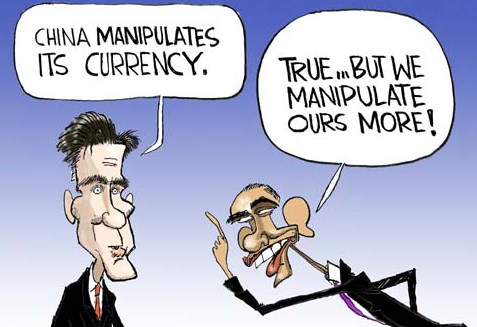Ian Talley writes: The Obama administration, facing a push by U.S. lawmakers to insert language that targets currency manipulation in a major Pacific trade deal, is pitching a less-aggressive approach that would bolster international oversight and transparency of currency policies.
The Treasury Department says the “historic new approach” it envisions would bring exchange-rate provisions into trade negotiations for the first time and strengthen U.S. efforts to persuade countries not to use their currencies to gain unfair competitive advantages.
The administration hopes its strategy would help fend off efforts—largely by members of the president’s own party—to include provisions for binding sanctions against currency manipulators. The White House says those measures would sink the Trans-Pacific Partnership trade deal, a pillar of President Barack Obama’s plan to boost the U.S. economy and fortify economic and strategic ties in Asia.
The Senate late Friday passed legislation on what is known as fast-track authority, propelling the bill toward what is expected to be an even-more difficult path in the House next month. The Senate rejected a currency-manipulation amendment in the measure, also known as trade promotion authority, which would allow the Obama administration to complete the trade pact with Japan and 10 other nations and bring it to Congress for up-or-down votes as soon as this fall.
The Treasury Department’s proposal—pitched to TPP member countries in recent weeks—is preliminary and faces major hurdles. One option under consideration is to require better data on the key metrics for gauging currency management such as details on foreign-currency reserves and interventions. Many countries don’t provide that data to international institutions such as the International Monetary Fund, often leaving outside economists guessing about the extent of exchange-rate interventions.

